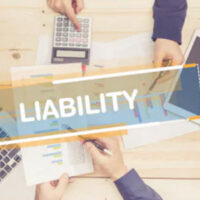Liability Issues In Alcohol-Related Wrecks

A sustained drunk driver crackdown began in the early 1990s. Yet despite all this effort, alcohol still causes about a third of the fatal vehicle collisions in Florida. That proportion was roughly the same in the 1980s, before the crackdown began. Alcohol is a powerful depressant. The effects of alcohol might be fun at parties, but they are dangerous when one operates heavy machinery, including a high-speed motor vehicle.
Arguably, people who drink and drive know the risk they take. In other words, they intentionally disregard the safety of other people when they get behind the wheel. As a result, a Tampa drunk driver accident attorney is often able to obtain substantial compensation in these cases. This compensation usually includes money for economic losses, such as medical bills, and noneconomic losses, such as pain and suffering.
First Party Liability
This compensation is available if a victim/plaintiff proves negligence, which is essentially a lack of care. Alcohol-related crash victims normally have two options in this area.
Ordinary negligence is usually a lack of reasonable care. This legal responsibility, which applies to most noncommercial drivers, requires them to avoid accidents when possible and drive defensively. Commercial operators, like Uber drivers, usually have a higher duty of care.
As mentioned, alcohol is a depressant. It impairs motor skills. As a result, people who drink and drive are not in full control of their bodies. Such people clearly violate the duty of care. Evidence of impairment includes:
- Bloodshot eyes,
- Odor of alcohol,
- Slurred speech, and
- Erratic driving prior to the wreck.
The impairing effects of alcohol begin with the first drink. Therefore, many motorists are dangerously impaired but not legally intoxicated.
If the tortfeasor (negligent driver) was charged with DUI, the negligence per se doctrine usually applies. Since a statute establishes the standard of care, there’s no need to offer additional evidence on this point, at least for liability purposes. Additional evidence could be relevant in terms of damages.
The Comparative Fault Defense
Alcohol-related wrecks are difficult to defend, unless this doctrine applies. Contributory negligence basically shifts blame for the accident from the tortfeasor to the victim. Insurance company lawyers would probably use this defense if the tortfeasor was mildly impaired and the victim ran a red light.
In these situations, after they hear the evidence, jurors must divide fault between the two parties. Florida is a pure comparative fault state. So, even if the victim was 99 percent responsible for the wreck, the tortfeasor is liable for a proportionate share of damages.
Third Party Liability
Intoxicated or impaired drivers are personally responsible for the wrecks they cause. The bar, restaurant, or other commercial establishment which provided the alcohol could be financially responsible for damages, under Florida’s dram shop law.
Vicarious liability attaches if the establishment sold alcohol to an underage consumer or to a person who was habitually addicted to alcohol. Evidence of habitual addiction includes the aforementioned physical symptoms along with statements the person makes to a bartender or other employee.
Connect with a Diligent Hillsborough County Lawyer
Alcohol-related collisions often cause serious injuries. For a free consultation with an experienced personal injury attorney in Tampa, contact Mark H. Wright, PLLC. You have a limited amount of time to act.
Resource:
nhtsa.gov/risky-driving/drunk-driving
